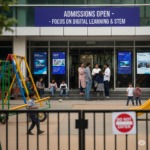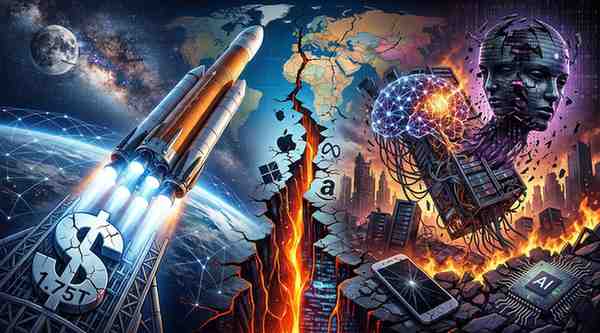
Democracy Under Siege: How Authoritarianism Masks as Freedom
Examining How India Faces Challenges to Its Democratic Ideals Amid Growing Centralization and Political Dominance
Key Highlights:
- Global Ranking: India ranked 46th on the Democracy Index 2024, slipping three spots from the previous year due to concerns over political centralization and press freedom (Economist Intelligence Unit, 2024).
- Media Freedom: India fell to 161st out of 180 countries in the World Press Freedom Index 2024, highlighting the growing curbs on independent journalism (Reporters Without Borders, 2024).
- Judicial Appointments: Recent controversies over judicial appointments have raised concerns about the judiciary’s independence and the role of the executive in influencing the process (Supreme Court Collegium, 2024).
- Protests and Suppression: Over 25,000 arrests were reported under preventive detention laws in 2024, sparking debates about the misuse of laws like the UAPA and sedition laws (Home Ministry Report, 2024).
Introduction
Democracy thrives on pluralism, dissent, and the separation of powers. In India, the world’s largest democracy, these principles are being tested as the lines between democratic governance and authoritarian tendencies blur. While the government emphasizes development and stability, critics argue that centralization of power, suppression of dissent, and weakened institutions are undermining the country’s democratic foundations. This article delves into how authoritarianism can masquerade as freedom, using India as a case study.
Political Centralization and Its Consequences
1. Executive Dominance
India’s federal structure is being challenged by the growing centralization of power:
- State vs. Centre Tensions: States like West Bengal and Tamil Nadu have accused the central government of withholding funds for schemes such as MNREGA, impacting grassroots governance (Finance Ministry Report, 2024).
- Use of Governors: Critics argue that the role of governors in opposition-ruled states has become politically motivated, with delays in assenting to state legislation.
2. Electoral Landscape
The dominance of a single party has raised concerns about the erosion of political plurality:
- BJP’s Electoral Strength: The Bharatiya Janata Party (BJP) won 303 seats in the 2024 Lok Sabha elections, consolidating its hold on national politics.
- Opposition Weakness: Fragmentation among opposition parties has limited their ability to present a united challenge, further consolidating power in the ruling party’s hands.
Curtailing Dissent and Civil Liberties
1. Media Restrictions
Freedom of the press, a cornerstone of democracy, faces significant challenges:
- Arrests of Journalists: High-profile cases like the arrest of journalist Siddique Kappan in 2024 under anti-terror laws sparked widespread criticism.
- Ad Revenue Dependence: The dominance of government advertising in sustaining media outlets has led to concerns about editorial independence.
2. Legal Suppression
Laws intended to ensure security and public order are increasingly used to target dissent:
- UAPA and Sedition Laws: The Unlawful Activities (Prevention) Act (UAPA) was invoked in over 1,000 cases in 2024, often against activists and opposition figures (Home Ministry Report).
- Preventive Detention: Over 25,000 individuals were detained under laws like the Public Safety Act, with critics alleging their misuse to stifle protests.
Institutional Independence Under Threat
1. Judicial Autonomy
The judiciary’s role as a check on executive power is being scrutinized:
- Judicial Appointments: The Supreme Court Collegium has raised concerns over delays in the appointment of judges, blaming interference from the executive branch.
- Selective Hearings: Allegations of preferential scheduling of politically sensitive cases have raised doubts about impartiality.
2. Erosion of Parliamentary Oversight
The weakening of parliamentary mechanisms has limited accountability:
- Reduced Debates: In 2024, only 40% of proposed legislation was debated in Parliament before being passed, compared to 60% a decade ago (PRS Legislative Research, 2024).
- Ordinance Route: The government issued 12 ordinances in 2024, bypassing parliamentary scrutiny (Law Ministry Data).
The Role of Citizens in Protecting Democracy
1. Protest Movements
India’s democratic resilience is evident in grassroots activism:
- Farmers’ Protests: The 2021-22 farmers’ protests successfully overturned controversial farm laws, showcasing the power of collective action.
- Save Aarey Movement: Environmental activists in Mumbai halted a metro project in 2024, protecting a green zone.
2. Role of Social Media
While heavily regulated, social media remains a tool for activism and awareness:
- Hashtag Campaigns: Movements like #ReleaseActivists and #SaveDemocracy have amplified citizen voices against alleged governmental overreach.
Voices of Concern
- Legal Expert: “The frequent use of preventive detention laws indicates a drift from democratic norms. Judicial oversight must be strengthened,” says Prashant Bhushan, Senior Advocate.
- Journalist: “Independent journalism is under siege. Arrests and censorship are chilling freedom of the press,” states Rana Ayyub, investigative journalist.
- Opposition Leader: “Democracy is not just about elections but also about respecting dissent. Today, dissenters are labeled anti-nationals,” claims Rahul Gandhi, Congress leader.
Recommendations for Safeguarding Democracy
- Strengthen Institutional Autonomy: Ensure independent functioning of the judiciary, Election Commission, and media.
- Repeal Misused Laws: Review and repeal draconian laws like sedition and limit the use of preventive detention.
- Promote Federalism: Empower states through equitable resource allocation and reduce political interference.
- Encourage Public Participation: Support citizen-driven initiatives and protect the right to protest peacefully.
Conclusion
India’s democratic framework is robust, but the encroachment of authoritarian tendencies poses significant challenges. While development and stability are important, they must not come at the cost of freedoms and pluralism. Citizens, institutions, and policymakers must collectively work to uphold the principles that define a true democracy. The question remains: Will India safeguard its democratic legacy or allow authoritarianism to further mask as freedom?




